Taking a Look At Stem Cell Therapy as Alternative to Lasix For Equine Pulmonary Bleeding
September 21, 2015 Comments Off on Taking a Look At Stem Cell Therapy as Alternative to Lasix For Equine Pulmonary Bleeding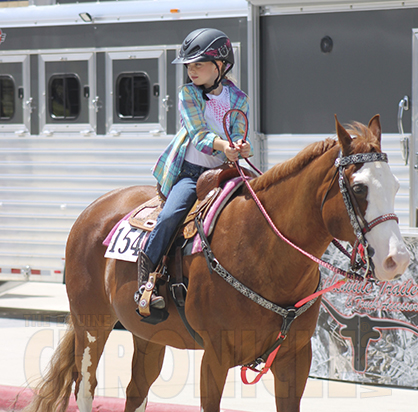
Taking a Look At Stem Cell Therapy as Alternative to Lasix For Equine Pulmonary Bleeding
Continue reading …From Trainer to Veterinarian: Things I Wish I Knew
September 21, 2015 Comments Off on From Trainer to Veterinarian: Things I Wish I Knew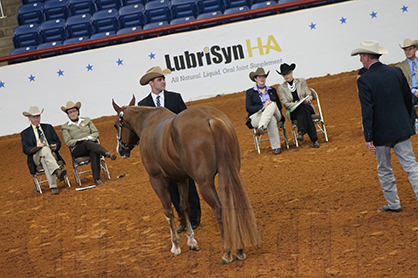
On Tuesday, October 6, at 6:30 p.m., Dr. Nikki Scherrer, Ophthalmology Resident, will discuss a veterinarian’s perspective on common medical issues that arise at horse shows in her talk, “From Trainer to Veterinarian: Things I Wish I Knew.”
Continue reading …Sept. is National Preparedness Month- Is Your Horse Ready For a Fire, Tornado, or Flood?
September 15, 2015 Comments Off on Sept. is National Preparedness Month- Is Your Horse Ready For a Fire, Tornado, or Flood?
September is National Preparedness Month- Is Your Horse Ready For a Fire, Tornado, or Flood?
Continue reading …Study on the Effects of Hippotherapy on Balance/Gait in Children with Spastic Cerebral Palsy
September 15, 2015 Comments Off on Study on the Effects of Hippotherapy on Balance/Gait in Children with Spastic Cerebral Palsy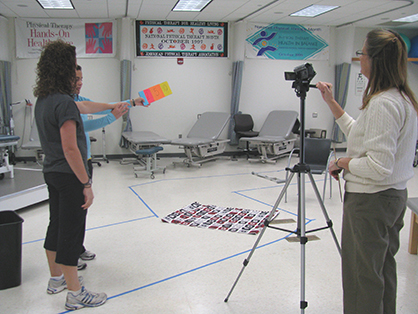
Children with cerebral palsy, from the ages of three to six, participated in this study. The team assessed balance, gait, participation and quality of life of all participants before and after intervention.
Continue reading …Progress in Pain Recognition in Horses
September 14, 2015 Comments Off on Progress in Pain Recognition in Horses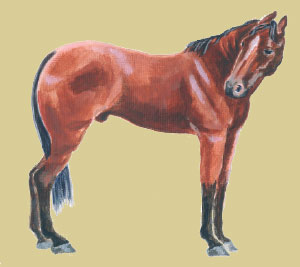
Hiding pain is one of the top survival skills of the horse. An important part of horse ownership is learning to recognize the signs a horse may be in discomfort rather than dismissing certain subtle cues as just bad behavior.
Continue reading …Do You Know How to Properly Fit Your Horse’s Bridle?
September 8, 2015 Comments Off on Do You Know How to Properly Fit Your Horse’s Bridle?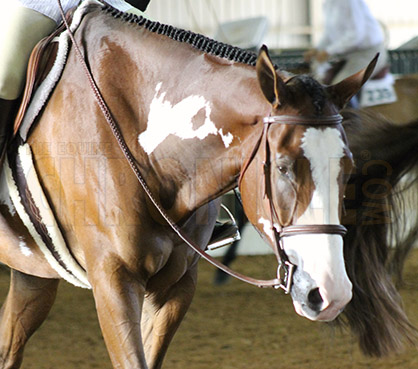
Adjust the cheekpieces so the bit makes one or two small wrinkles in the corner of the horse’s mouth. Adjust the noseband so it has two fingers’ width of slack between the horse’s nose and the noseband.
Continue reading …NJ Symposium on Legal, Business, and Insurance Issues Impacting the Equine Industry
September 8, 2015 Comments Off on NJ Symposium on Legal, Business, and Insurance Issues Impacting the Equine Industry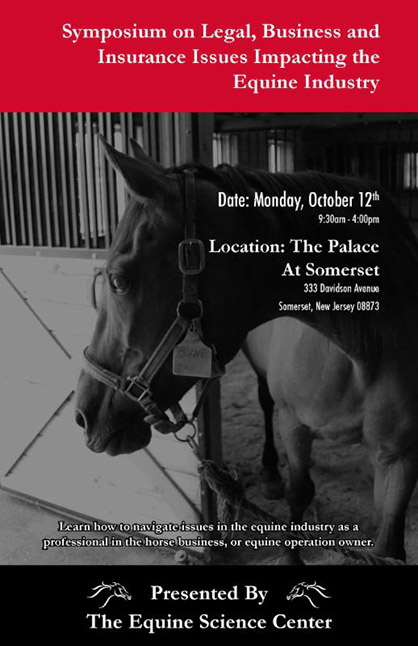
“In order for the equine industry to succeed, people in the horse industry have to run their business as a business,” said Liz Durkin. “We believe that this symposium is the first event of its kind where the target audience is equine operators specifically.”
Continue reading …NSAIDs – Are You Following the Rules?
September 4, 2015 Comments Off on NSAIDs – Are You Following the Rules?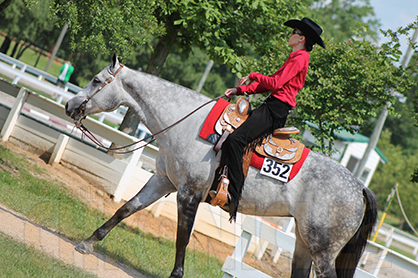
There are seven Food and Drug Administration (FDA)-approved NSAIDs approved for use by the USEF, as well as the American Quarter Horse Association (AQHA): diclofenac liposomal cream, firocoxib, phenylbutazone, flunixin meglumine, ketoprofen, meclofenamic acid and naproxen.2,3
Continue reading …What Horse Owners NEED to Know About EPM
September 3, 2015 Comments Off on What Horse Owners NEED to Know About EPM
Many signs of EPM mimic those of other equine disorders that affect the central nervous system, such as wobbler syndrome, rabies, West Nile virus, equine herpesvirus and equine motor neuron disease. Clinical signs of EPM range from extremely subtle to severe.
Continue reading …The O-Scan- New MRI System Designed Specifically For High Quality Horse Images
September 3, 2015 Comments Off on The O-Scan- New MRI System Designed Specifically For High Quality Horse Images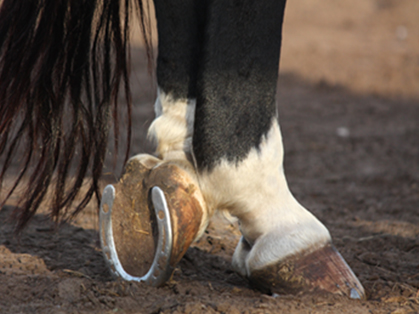
The O-Scan is a high-resolution MRI system for diagnostic imaging using a low-field magnet. The MRI is capable of imaging extremities, from the foot to the hock (tarsus) or knee (carpus). The system, manufactured by Esaote, can also be used for other large animals.
Continue reading …







